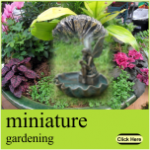Planting ground cover plants in your garden is one of the beautiful  ways of enhancing your garden style and appearance. Ground cover plants are those which grow at a lower level and form a dense cover. Here are some pros and cons of ground cover plants.
ways of enhancing your garden style and appearance. Ground cover plants are those which grow at a lower level and form a dense cover. Here are some pros and cons of ground cover plants.
Pros of ground cover plants
- Ground covers reduce water loss and soil erosion. They promote soil conservation in steep slopes.
- They provide insulation to the soil and keep it cooler during summer and warmer during winter.
- The entire ground is covered by the ground cover plants like a carpet. Hence, they minimize the germination of weeds and you need not worry about the preventive ways to keep off the weeds. This makes it easy to maintain the landscape.

- They act as a living mulch and also help in building humus levels in the soil.
Cons of ground cover plants
- Though the ground cover plants are weed suppressors, you need to take care that there are no weeds in the landscape till these plants establish themselves.
- There may be a competition between the ground cover plants and other garden plants for water and fertilizers.
- Ground cover plants often are the best habitats for slugs, snakes, snails and pests.
- The choice of these plants should be made effectively. If you choose those plants which grow vigorously, the ground cover may overrun other garden plants you wish to grow.

Hence, consider the advantages and disadvantages of ground cover plants when you wish to design a ground cover for your garden.